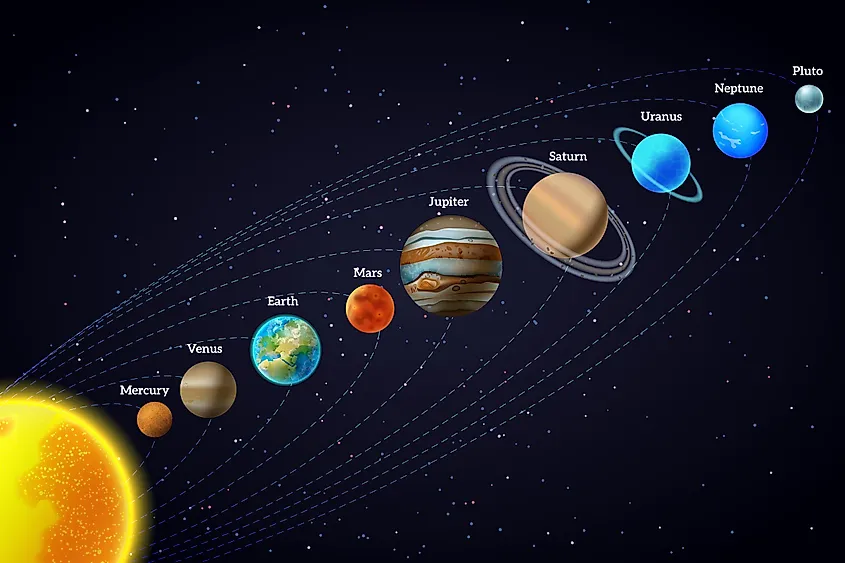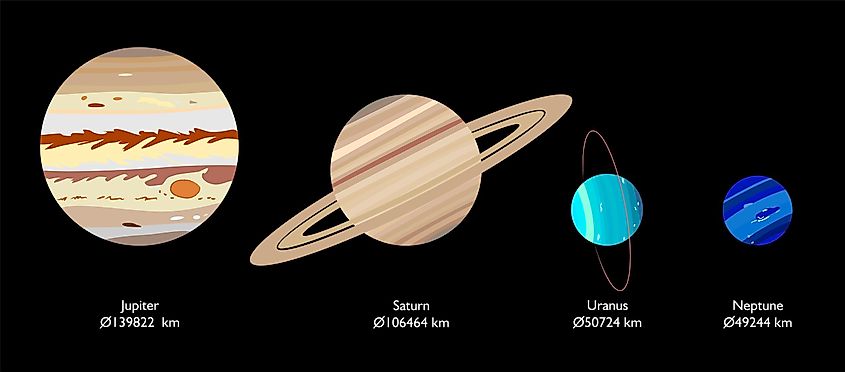Planet X, also called Planet Nine, is a hypothetical planet that orbits the sun in the far outer regions of the solar system. To date, there are eight known planets in the solar system, yet it is possible that there are more planets out there. Planets are dim and small, so detecting planets that are far away is tremendously difficult. The existence of a ninth planet was proposed as a response to observations of distant objects called Extreme Trans-Neptunian Objects (ETNO). While observing a cluster of ETNOs, astronomers noticed that their orbits are slightly tilted in such a way that suggests there is a massive object in the outer solar system. Astronomers have calculated the mass of this object to be between five and ten Earth masses, making it a planet. Although there is some indirect evidence of Planet Nine’s existence, astronomers have not yet found any concrete proof that it exists. This means that very little is known about Planet Nine, and as of yet, astronomers have only been able to predict its orbit, size, and mass. If Planet Nine does exist, it will likely either be a super-Earth or a mini-Neptune.
Orbit

If Planet Nine existed, it would orbit the sun at an extremely vast distance. Planet Nine is estimated to orbit the sun at a maximum distance of 75-billion miles (120-billion kilometers), or about 26 times further from the sun than Neptune. It would take Planet nine upwards of 20,000 Earth years to complete one orbit at such a vast distance from the sun.
Formation

There are two possibilities for how Planet Nine could have formed and ended up so far away from the sun. It is unlikely that Planet Nine would have formed at its estimated distance from the sun, so it most likely originated in the same region of the solar system as the gas giants. If Planet Nine formed closer to the sun, the gravitational pull of Jupiter and Saturn would have likely slingshotted Planet Nine into the far outer regions of the solar system. Another possibility is that Planet Nine never actually formed in our solar system and, instead, may be a captured planet that formed around another star. Although this may seem strange, it is possible. Planet Nine may have formed in another solar system and was flung out during the formation of its solar system, traversing space until it fell into orbit around the sun. Another possibility is that our solar system passed close enough to another solar system that Planet Nine was stolen by the sun.
Searching For Planet Nine
As of yet, the only evidence of Planet Nine is the tilted orbits of ETNOs. Unfortunately, this evidence is not sufficient enough for the existence of Planet Nine to be confirmed. More direct evidence will need to be found for Planet Nine to be accepted as real. Preferably, that evidence will come in photographs taken by telescopes. Sadly, every search for Planet Nine has turned up empty, yet that does not necessarily mean Planet Nine does not exist. Planet Nine could simply be so far and dim that telescopes will barely be able to spot it, and more advanced technology may be required. Astronomers will need to continue surveying the sky in the areas where Planet Nine is predicted to be. If Planet Nine does exist, it will likely be found in the near future.
Planet Nine Fact Sheet
| Radius | Two to four times larger than Earth |
|---|---|
|
Mass |
Five to Ten times the Earth |
|
Distance from the sun |
75-billion miles (120-billion kilometers) |
|
Length of year |
20,000 Earth years |
https://www.worldatlas.com/space/planet-x.html
2022-06-07 13:39:44Z
CBMiLmh0dHBzOi8vd3d3LndvcmxkYXRsYXMuY29tL3NwYWNlL3BsYW5ldC14Lmh0bWzSATJodHRwczovL3d3dy53b3JsZGF0bGFzLmNvbS9hbXAvc3BhY2UvcGxhbmV0LXguaHRtbA
Bagikan Berita Ini














0 Response to "Planet X (Planet Nine) - Worldatlas.com"
Post a Comment